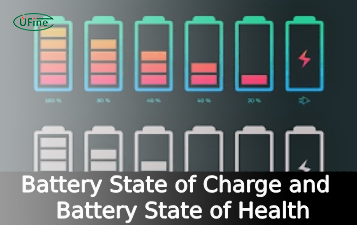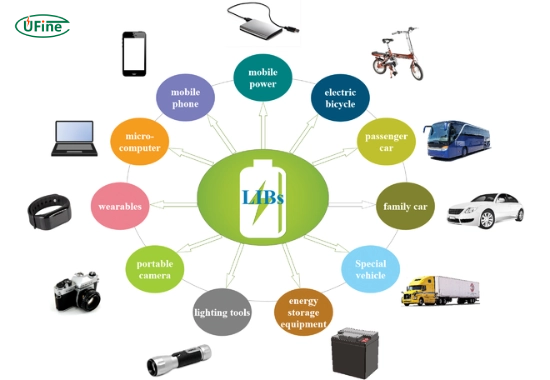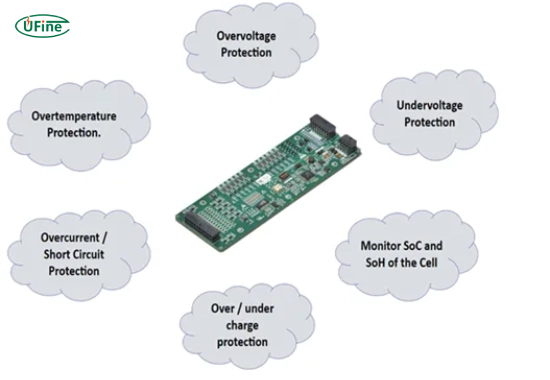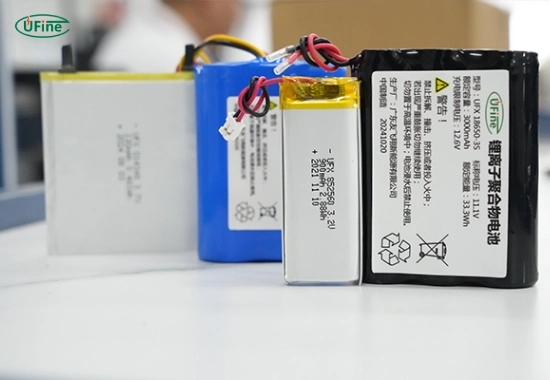
- Part 1. What are lithium batteries used for?
- Part 2. What does "cheap" really mean in lithium battery manufacturing?
- Part 3. How does cell grade affect battery performance?
- Part 4. What is a battery management system (BMS) and why is it critical?
- Part 5. Why are certifications important for lithium battery safety?
- Part 6. How to evaluate a reliable cheap lithium battery?
- Part 7. Where can you find safe and affordable lithium batteries?
- Part 8. What are the dangers of buying ultra-cheap lithium batteries?
- Part 9. Best practices for using and maintaining lithium batteries
- Part 10. How to test lithium batteries before installation?
- Part 11. FAQs about cheap lithium batteries
Are you looking for cheap lithium batteries that are also safe and reliable? Let’s explore how to identify the best low-cost lithium batteries without compromising performance or safety.
Lithium batteries are now essential in modern life. From powering laptops and phones to storing energy in solar systems and running electric vehicles, these batteries have revolutionized how we use energy. However, as demand grows, so does the number of budget options on the market. The challenge is figuring out which cheap lithium batteries are worth buying and which could be dangerous or poorly made.
In this complete guide, we’ll explain every major factor to consider so you can confidently choose a battery that saves money without sacrificing standards.
Part 1. What are lithium batteries used for?
Lithium batteries are rechargeable energy storage units that use lithium ions to move between electrodes during charging and discharging. They are known for their high energy density, lightweight design, and long cycle life.
You’ll find them commonly used in:
- Portable electronics such as smartphones and laptops
- Electric vehicles
- Solar power storage systems
- Recreational vehicles (RVs) and campers
- Backup power and UPS systems
- Marine and off-grid applications
Whether building a solar setup or replacing a lead-acid battery in your RV, lithium batteries are often the smarter and more efficient.
Part 2. What does “cheap” really mean in lithium battery manufacturing?
When people say “cheap lithium batteries,” they usually mean low price. However, “cheap” can reflect more than just cost in manufacturing. It can also mean:
- Lower cell grade
- Simplified or missing Battery Management System (BMS)
- Fewer safety protections
- No proper certifications
- Poor quality control during production
Not all inexpensive batteries are dangerous, but some are cheap for the wrong reasons. A battery that is affordable due to mass production efficiency is very different from one that is cheap because it uses recycled or low-grade cells.
Understanding this difference is key to making a safe and smart purchase.
Part 3. How does cell grade affect battery performance?
The cell grade determines the core quality of a lithium battery. Battery cells are usually divided into three grades:
Grade A
These are top-tier cells used by major manufacturers like Tesla, LG, and Panasonic. They have:
- Maximum capacity and performance
- Consistent quality across batches
- Long lifespan with minimal degradation
Grade B
These cells are slightly imperfect but still functional. They may show minor inconsistencies in capacity or voltage. They are usually used in less demanding applications.
Grade C or Recycled
These are often used in very cheap batteries. They are either reused from old packs or are factory rejects. These batteries tend to degrade quickly, have unstable voltage, and pose serious safety risks.
Always ask the supplier about the cell grade when buying cheap lithium batteries. If they don’t provide this information, it is a red flag.
Part 4. What is a battery management system (BMS) and why is it critical?
The Battery Management System (BMS) is the brain of a lithium battery. It protects the battery from unsafe conditions and extends its life. A reliable BMS will:
- Prevent overcharging and over-discharging
- Monitor cell temperature
- Balance the charge across cells
- Shut down the battery in case of a short circuit or thermal runaway
- Provide real-time data (in smart BMS units)
Cheap batteries often use simplified or outdated BMS designs. These may lack essential protections, putting both your battery and devices at risk.
When buying a battery, make sure it includes a full-featured BMS. Look for terms like “over-voltage protection,” “thermal cut-off,” and “cell balancing” in the specs.
Part 5. Why are certifications important for lithium battery safety?
Certifications are proof that a battery has passed specific safety and performance tests. Third-party labs usually conduct these tests. The most common certifications to look for include:
- CE (Conformité Européenne): Shows compliance with European health, safety, and environmental requirements
- UL (Underwriters Laboratories): Indicates compliance with electrical safety standards
- RoHS (Restriction of Hazardous Substances): Ensures the battery does not contain harmful materials
- UN38.3: Confirms the battery is safe for air and sea transport
- IEC 62133: International safety standard for lithium batteries
If a battery lacks these certifications, it may be unsafe to use. Always ask for documentation before buying, especially from overseas sellers.
Part 6. How to evaluate a reliable cheap lithium battery?
When evaluating a budget lithium battery, use the following checklist:
- Cell Grade: Look for Grade A or factory-new Grade B cells
- BMS Features: Ensure complete protection, including temperature, voltage, and current safeguards
- Certifications: CE, UL, RoHS, UN38.3, and IEC 62133 preferred
- Cycle Life: At least 2000–4000 charge cycles
- Brand Reputation: Check user reviews, technical forums, and independent test results
- Warranty: Look for at least a 1–2 year warranty
- Support: Choose sellers who offer clear documentation and after-sales help
If a battery checks all the above boxes, it is likely a safe and reliable option, even if the price is below average.
Part 7. Where can you find safe and affordable lithium batteries?
Some trusted platforms and sources to purchase cheap lithium batteries include:
- Official brand websites: Often offer direct discounts and full warranties
- Amazon: Look for top-rated brands with genuine customer reviews
- AliExpress: Choose sellers with high feedback and detailed product listings
- eBay: Stick to trusted power sellers with battery-specific shops
- Local battery dealers: Some offer refurbished batteries with test data
Always ask for technical specifications, warranty terms, and available certifications before placing an order.
Part 8. What are the dangers of buying ultra-cheap lithium batteries?
While it is tempting to go for the lowest price, ultra-cheap lithium batteries can lead to serious issues:
- Fire hazard from poor BMS or damaged cells
- Short lifespan due to low-grade or recycled cells
- Unstable voltage output that damages connected devices
- No warranty or support when problems arise
- Risk of transport bans if the battery lacks UN38.3 certification
The phrase “you get what you pay for” applies strongly here. Spending more for a safer, better-quality battery is always a smarter long-term decision.
Part 9. Best practices for using and maintaining lithium batteries
To get the best performance from your battery, follow these tips:
- Use a lithium-compatible charger
- Avoid full discharges; keep charge between 20% and 80% for the longest life
- Store in a cool, dry place
- Avoid physical damage or water exposure
- Check the battery regularly for swelling or overheating
- Use monitoring tools if your battery supports Bluetooth or smart tracking
Proper maintenance can double the lifespan of your battery, especially if it’s a budget model.
Part 10. How to test lithium batteries before installation?
Before installing your battery into a system, perform a few simple tests:
- Voltage Test: Use a multimeter to check open-circuit voltage
- Charging Test: Apply a full charge and monitor for overheating
- Discharge Load Test: Connect to a steady load and time the duration
- BMS Response Test: Simulate overcharge or short circuit if possible (only if you know what you’re doing)
- Balance Status: If possible, check that all cells are balanced within a few millivolts
If the battery fails any tests or behaves abnormally, contact the seller or manufacturer immediately.
Part 11. FAQs about cheap lithium batteries
Are cheap lithium batteries safe to use in solar systems?
Yes, if they are from a reputable source and have the right certifications and BMS. They can perform well in solar storage applications.
What is the normal lifespan of a cheap lithium battery?
A good-quality budget lithium battery can last 2000 to 4000 cycles, or 5 to 10 years, depending on usage and care.
Can I use a cheap lithium battery in my electric scooter or e-bike?
Yes, but make sure the battery matches your vehicle’s voltage and current requirements and includes proper BMS protections.
How do I know if a lithium battery is certified?
Check the product label and request the seller’s official test reports or certificates. Look for CE, UL, RoHS, and UN38.3 marks.
What’s the difference between refurbished and new cheap lithium batteries?
Refurbished batteries use recycled cells, which may have lower capacity and shorter lifespans. New batteries use fresh, unused cells, which are more reliable.
Related Tags:
More Articles

Battery State of Charge and Battery State of Health
Battery SoC vs. SoH explained: Learn professional methods to measure charge levels, test health status, and optimize battery performance for longer lifespan.
Difference Between 18650, 26650, and 21700 Batteries
What’s the difference between 18650, 21700, and 26650 batteries? Compare size, capacity, and performance to find the best lithium battery for your device.
LFP Battery Vs. LTO Battery: A Detailed Comparison
Compare LFP (LiFePO4) and LTO (Lithium Titanate) batteries by energy density, lifespan, safety, cost, and uses in EVs, solar storage, and backup power.
Compare 18650 battery types: Li-ion, LiFePO4, and LiPo. Key specs (voltage/capacity) and best uses for vapes, flashlights, EV batteries.
How to Distinguish Between Grade A, Grade B, and Grade C LiFePO4 cells?
Explore the differences between Grade A, B, and C LiFePO4 cells and learn how to choose the right one for electric vehicles, solar storage, or backup power.





